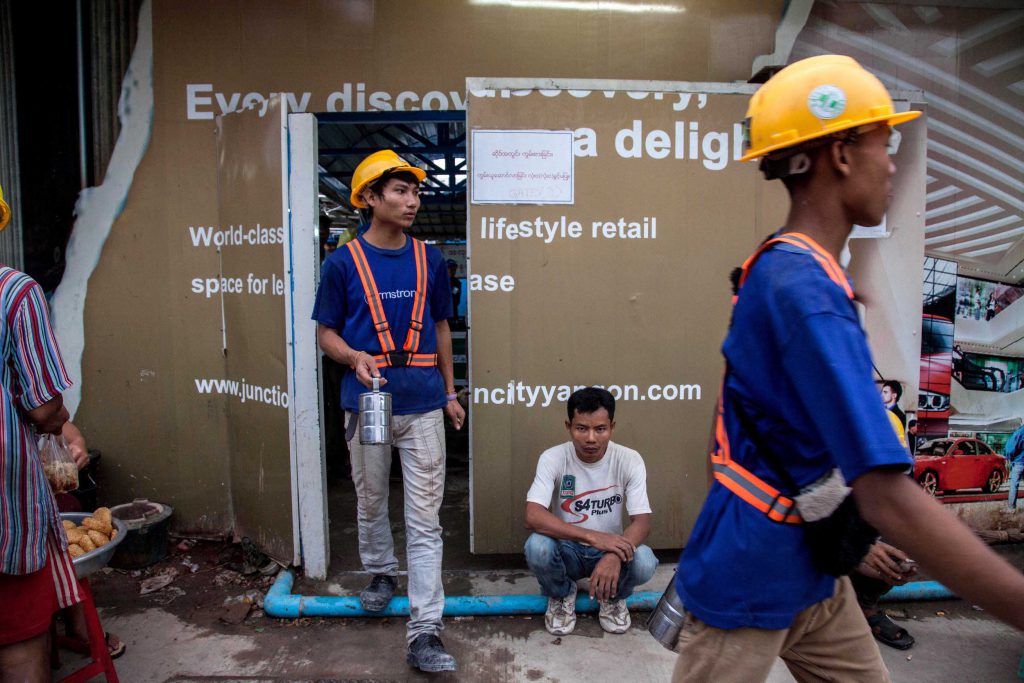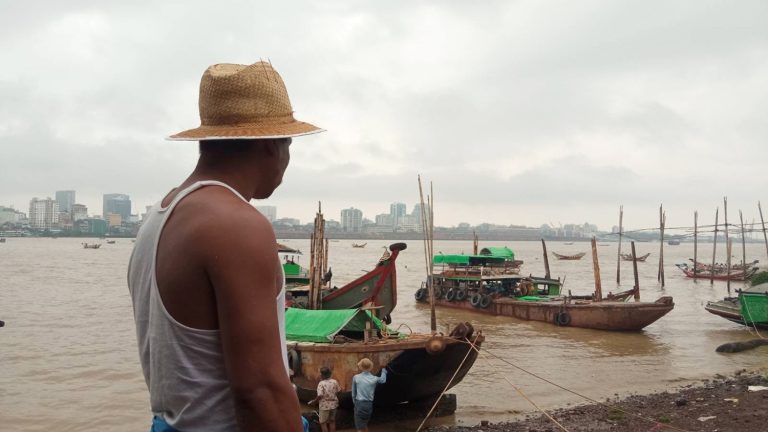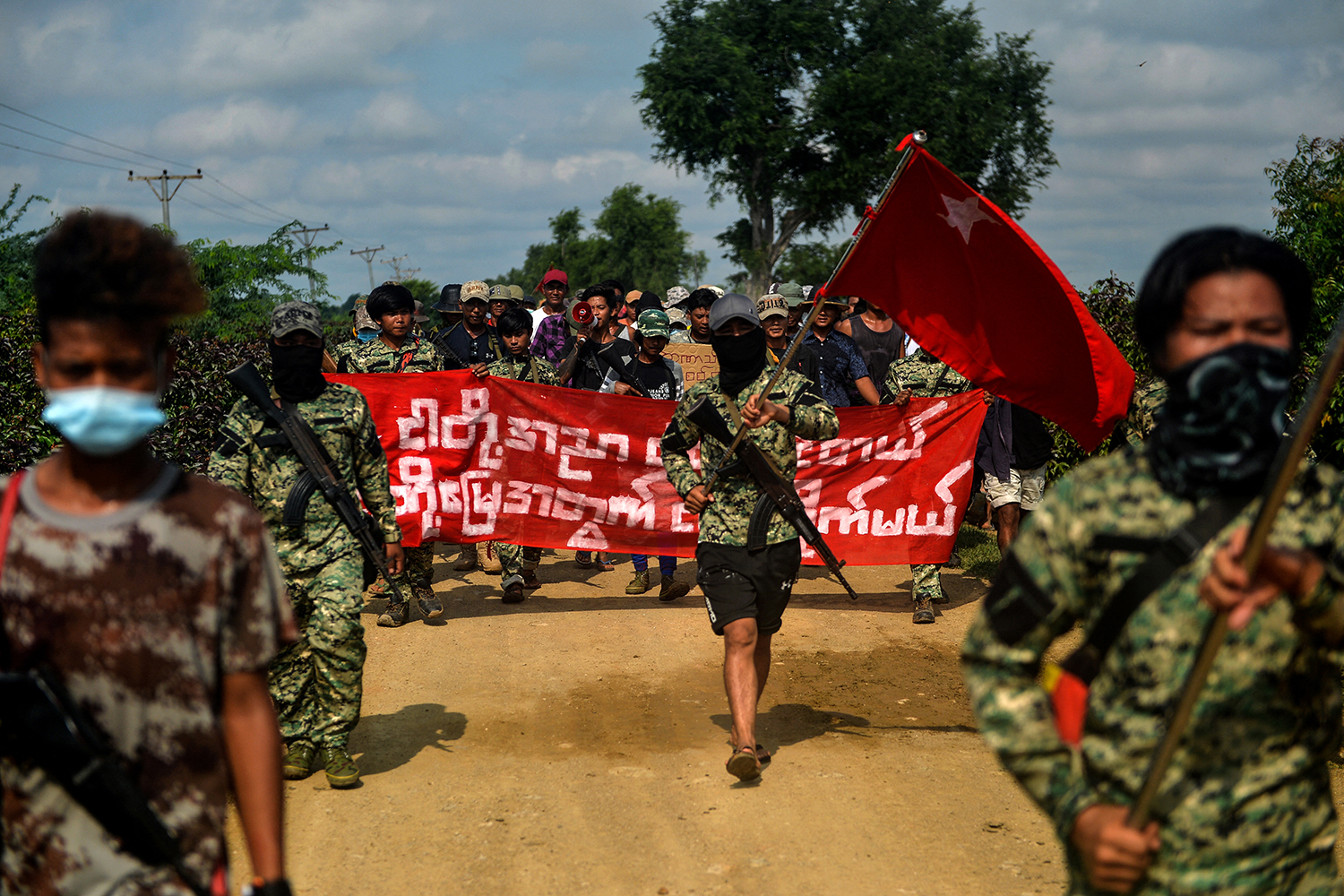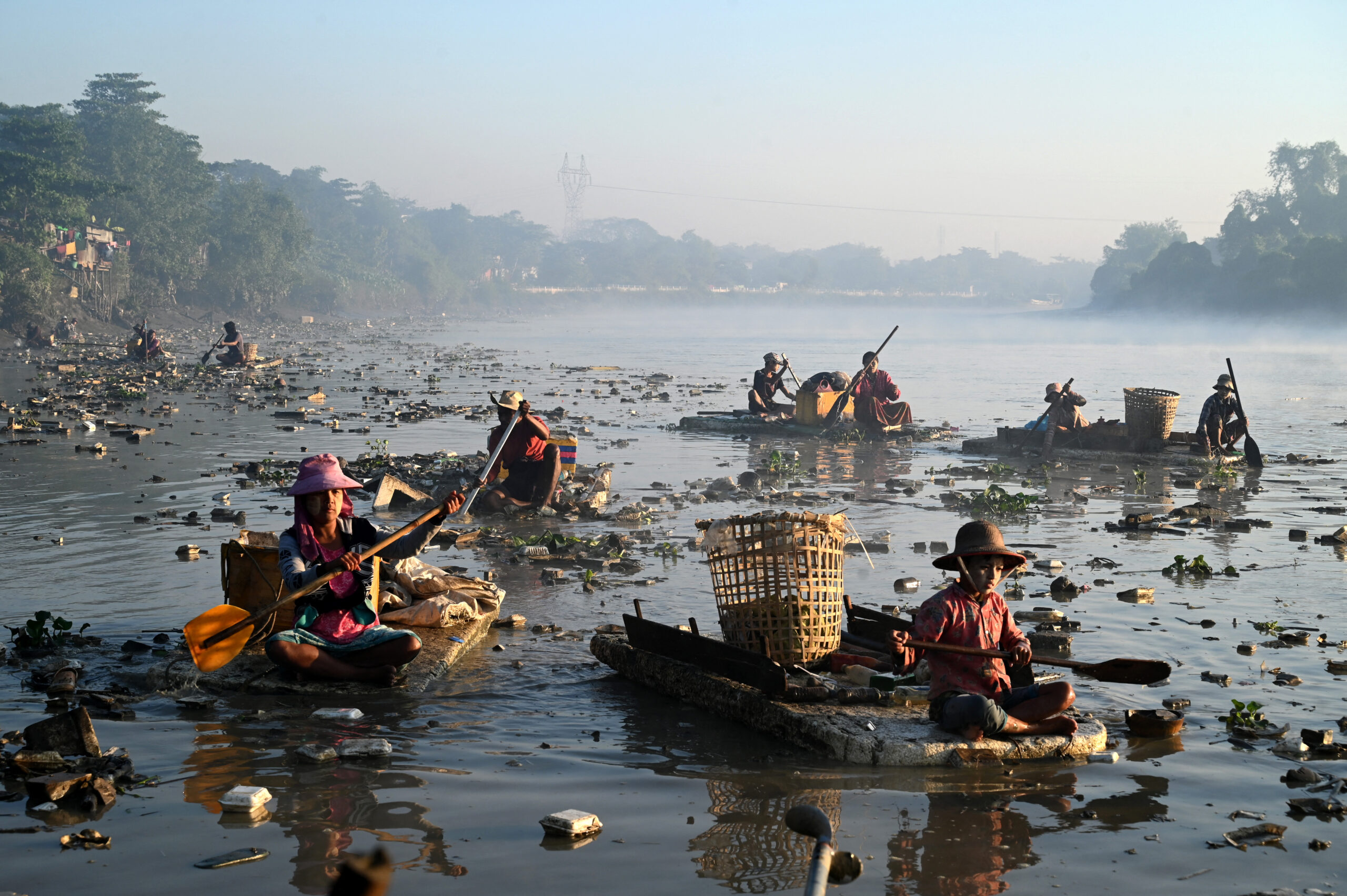As developers cry foul and warn of bankruptcy, officials in Yangon have defended decisions to chop storeys off some high-rise projects as being in the interests of the city’s orderly development.
By SITHU AUNG MYINT | FRONTIER
THE widely reported decision by a Yangon City Development Committee panel to order changes to high-rise residential and commercial projects on which work had already begun has created dramatic repercussions in the construction sector.
YCDC formed the panel to review nearly 200 high-rise projects after Yangon Region Chief Minister U Phyo Min Thein ordered a halt to construction in May. Construction permits had been issued for the first 64 projects to be reviewed and drastic changes were ordered to 12 high-rises on which work had begun.
The changes included halving the height of a 12.5 storey building in Yankin Township, ordering that work on a 32-storey high-rise in Mayangone be halted at its current height of 188 feet, or less than 20 storeys, and instructing a developer of a 27-storey project in Bahan to re-apply for a construction permit.
The repercussions of the YCDC review have been far reaching because of the huge investment in the construction sector in Yangon, involving some banks and real estate companies.
Developers, some of whom have warned they face bankruptcy, have petitioned President U Htin Kyaw and State Counsellor Daw Aung San Suu Kyi seeking a review of the panel’s decisions because of their financial impact and effect on their business reputation.
Before I explore the impact of the decision on the construction sector and the wider business world, I would like to provide some background. As mentioned, the review involves 64 buildings on which work had begun and about another 120 projects that had been agreed in principle by the previous government led by President U Thein Sein.
The review, which began just months after the National League for Democracy took power following its landslide election victory last November – including winning 88 of the 92 elected seats in the 123-seat Yangon regional hluttaw – was ordered because of concern that some projects did not meet construction standards or building rules and regulations, and breached urban development guidelines, including not providing enough car parking spaces.
It was widely suspected that the primary motivation for many of the projects was to make as much money as possible at the expense of the systematic development of the city of Yangon.
The YCDC panel inspecting the high-rise projects included officials from the Yangon Region government and the YCDC, and construction engineers and architects. The panel submitted its findings to the regional government and after thorough discussion it wrote to the developers of the 12 projects advising of its decision to order changes. It is unclear what changes will be ordered to the remaining 52 buildings.
The panel said almost all of the 12 buildings to which changes were ordered had exceeded height limits, which vary in different parts of the city. Some had not provided enough car parking spaces and there were cases of the height of a building not being in proportion with the width of the street it faced.
Developers were furious because most of these rules are based on a draft zoning plan that was not in place when the construction permits were issued.
The order to reduce the height of residential developments is also problematic because they have pre-sold most of the units, including some on floors that can now no longer be built.
The panel has said it tried to be as lenient as possible but that its first priority was appropriate urban development in Yangon to ensure a better quality of life for its 5-million-plus residents.
Under previous governments, real estate and construction were among the most corrupt sectors of the economy. Complicated rules set for contractors and developers by bureaucrats could be overlooked by paying a bribe to Yangon Region government or YCDC officials.
Bribes resolved problems when work began on projects before construction permits had been issued or when buildings differed from approved designs. Graft has long been a problem in the construction sector in Yangon.
Strict supervision of building projects will be important for cleaning up the mess, and ensuring it doesn’t happen again. But rooting out corruption will be the primary challenge toward building a more livable Yangon.







